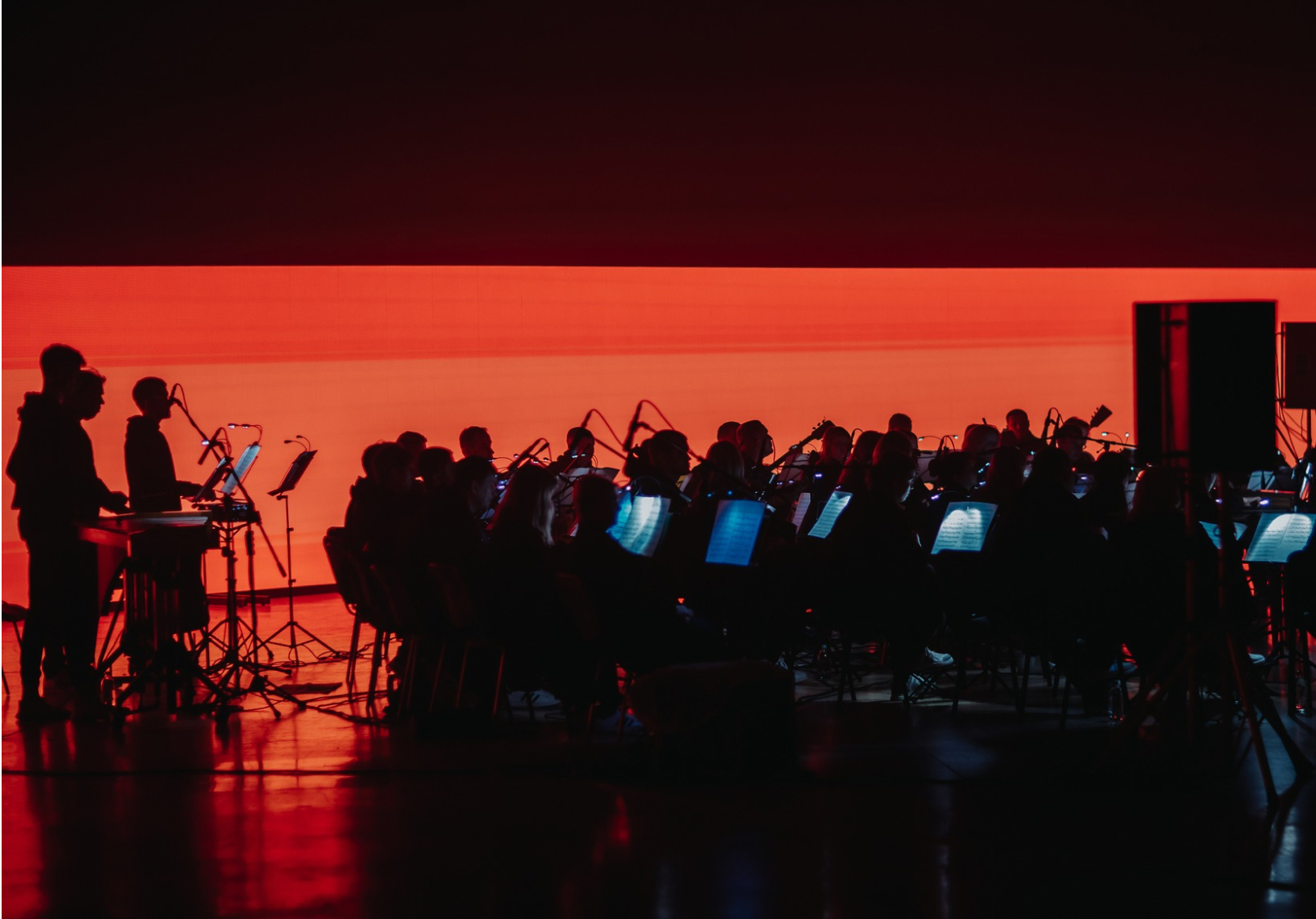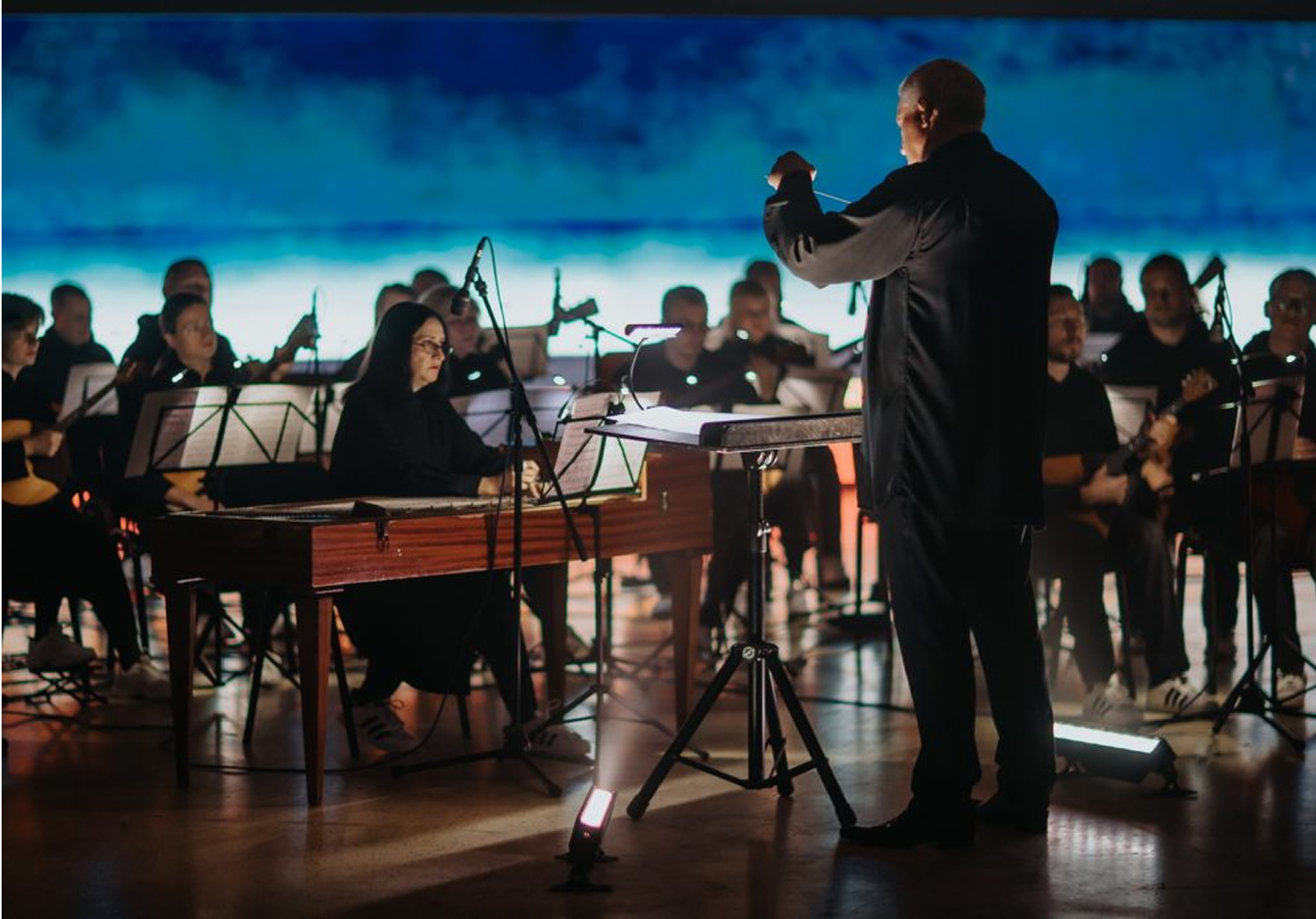Its intonational character is connected with the style of rock, yet in this arrangement the theme acquired a distinctly national accent
— which felt fresh and intriguing.
The dramaturgy of the piece is such that after an hour of endless variations, a distinct melody suddenly emerges.
The dramaturgy of the piece is such that after an hour of endless variations, a distinct melody suddenly emerges.
Its intonational character is connected with the style of rock, yet in this arrangement the theme acquired a distinctly national accent — which felt fresh and intriguing.
A special version of Simeon ten Holt’s Canto ostinato was created by composer Igor Yakovenko. Known for his bold experiments at the crossroads of jazz and academic music, he preserved the hypnotic aura of the original while giving it a new dimension. His arrangement transformed the minimalist masterpiece into a dialogue between Dutch modernism and the sound world of Russian folk instruments.
The scale of the production matched the ambition of the music. Nearly 700 people gathered in the darkened hall to experience the fusion of sound and visual art. Video projections inspired by Kazimir Malevich brought moving peasant figures onto a panoramic LED screen, while shifting colors echoed the evolving musical patterns. This turned the concert into a media performance, where minimalism intersected with national traditions.
For Yakovenko, the project was more than an arrangement—it was an artistic statement about the universality of music. By reinterpreting Canto ostinato through the timbres of domras and balalaikas, he revealed unexpected connections between Slavic song traditions and European minimalism. The result was a bold collaboration with conductor Evgeny Aleshnikov and the Belgorod Academic Russian Orchestra, redefining how contemporary audiences experience classical music.
Arrangements
Igor Yakovenko
Musicians
Belgorod Academic Russian Orchestra
Conductor
Evgeniy Aleshnikov
Ten Holt
Composer









